Book Club Listings 2026
JANUARY 21
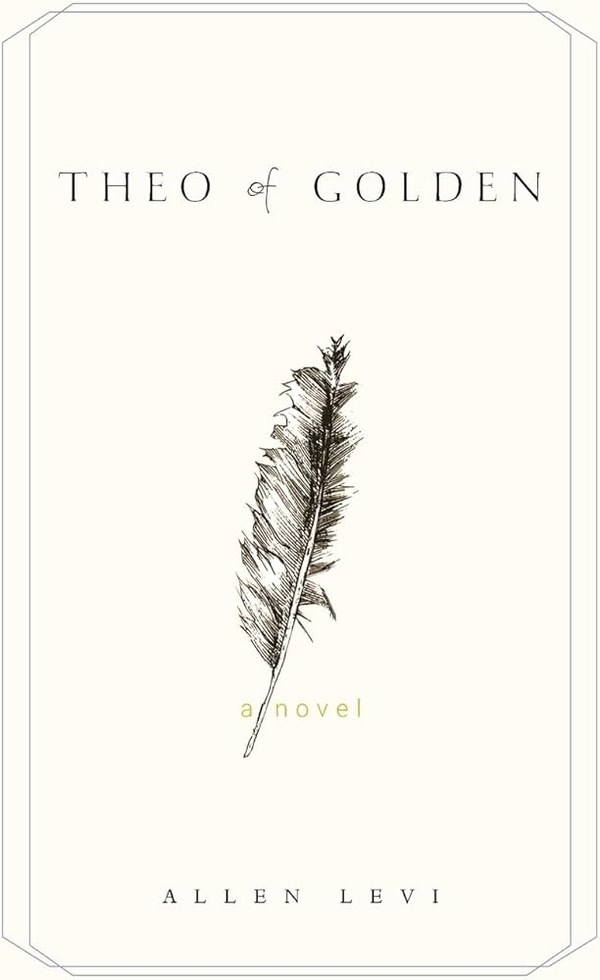
Theo of Golden by Allen Levi
Questions linger about Theo, a pleasant but mysterious stranger, after his arrival in the southern city of Golden. Who is he, and why is he here? He arrives early one spring and by chance - or is it? He visits a coffee shop where 92 framed pencil portraits are on display. Inspired, Theo sets out on a mission of purchasing all the portraits one at a time and quietly bestowing them on their 'rightful owners’.
Stories are told; friendships are born; and lives are changed. Theo of Golden is a beautifully crafted story about the power of creative generosity, the importance of wonder to a purposeful life, and the far-reaching possibilities of anonymous kindness.
FEBRUARY 18
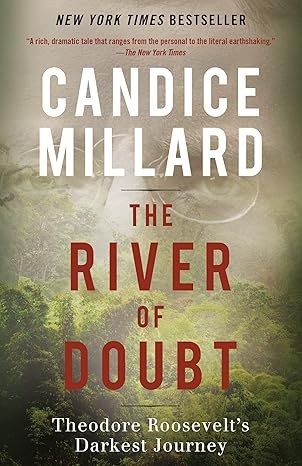
The River of Doubt: Theodore Roosevelt's Darkest Journey by Candace Millard
The River of Doubt—it is a black, uncharted tributary of the Amazon that snakes through one of the most treacherous jungles in the world. Indians armed with poison-tipped arrows haunt its shadows; piranhas glide through its waters; boulder-strewn rapids turn the river into a roiling cauldron.
After his humiliating election defeat in 1912, Roosevelt set his sights on the most punishing physical challenge he could find, the first descent of an unmapped, rapids-choked tributary of the Amazon. Together with his son Kermit and Brazil’s most famous explorer, Cândido Mariano da Silva Rondon, Roosevelt accomplished a feat so great that many at the time refused to believe it. In the process, he changed the map of the western hemisphere forever.
Along the way, Roosevelt and his men faced an unbelievable series of hardships, losing their canoes and supplies to punishing whitewater rapids and enduring starvation, Indian attack, disease, drowning, and a murder within their own ranks. Three men died, and Roosevelt was brought to the brink of suicide. The River of
MARCH 18
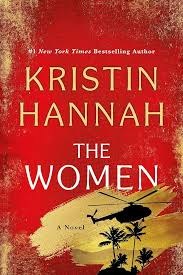
The Women by Kristin Hannah
Women can be heroes. When twenty-year-old nursing student Frances “Frankie” McGrath hears these words, it is a revelation. Raised in the sun-drenched, idyllic world of Southern California and sheltered by her conservative parents, she has always prided herself on doing the right thing. But in 1965, the world is changing, and she suddenly dares to imagine a different future for herself. When her brother ships out to serve in Vietnam, she joins the Army Nurse Corps and follows his path.
As green and inexperienced as the men sent to Vietnam to fight, Frankie is over-whelmed by the chaos and destruction of war. Each day is a gamble of life and death, hope and betrayal; friendships run deep and can be shattered in an instant. In war, she meets―and becomes one of―the lucky, the brave, the broken, and the lost.
But war is just the beginning for Frankie and her veteran friends. The real battle lies in coming home to a changed and divided America, to angry protesters, and to a country that wants to forget Vietnam
APRIL 15
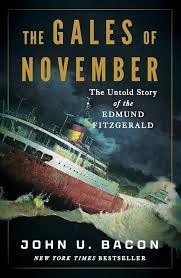
The Gales of November: The Untold Story of the Edmund Fitzgerald
by John U. Bacon
For three decades following World War II, the Great Lakes overtook Europe as the epicenter of global economic strength. The region was the beating heart of the world economy, possessing all the power and prestige Silicon Valley does today. And no ship represented the apex of the American Century better than the 729-foot-long Edmund Fitzgerald―the biggest, best, and most profitable ship on the Lakes.
But on November 10, 1975, as the “storm of the century” threw 100 mile-per-hour winds and 50-foot waves on Lake Superior, the Mighty Fitz found itself at the worst possible place, at the worst possible time. When she sank, she took all 29 men onboard down with her, leaving the tragedy shrouded in mystery for a half century.
In The Gales of November, award-winning journalist John U. Bacon presents the definitive account of the disaster, drawing on more than 100 interviews with the families, friends, and former crewmates of those lost. Bacon explores the vital role Great Lakes shipping played in America’s economic boom, the uncommon lives the sailors led, the sinking’s most likely causes, and the heartbreaking aftermath for those left behind―"the wives, the sons, and the daughters,” as Gordon Lightfoot sang in his unforgettable ballad.
Focused on those directly affected by the tragedy, The Gales of November is both an emotional tribute to the lives lost and a propulsive, page-turning narrative history of America’s most-mourned maritime disaster.
MAY 20
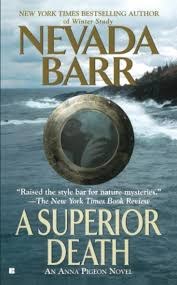
A Superior Death by Nevada Barr
Nevada Barr quickly attracted the attention of mystery fans when her first Anna Pigeon mystery, Track of the Cat, appeared. Now she immerses the intrepid park ranger in a perilous search that will take her far below the waters of Lake Superior. As Anna spends her days patrolling its shores, the surface of Lake Superior fills with tourists. In the depths below lie an ancient ship and the bones of its sailors. But when two tourists dive down to see the wreck, they discover that a new body has joined the skeletal crew. As Anna tries to discover how and why, she encounters secrets darker and more deadly than the waters surrounding the corpse. Filled with suspense, A Superior Death is also laced with Anna Pigeon's self-deprecating humor.
JUNE 17
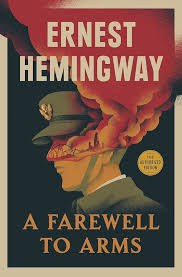
A Farewell to Arms by Ernest Hemingway
Ernest Hemingway captures the brutal reality of World War I through the eyes of Frederic Henry, an American serving as a lieutenant in the Italian army. As the horrors of war unfold, Frederic finds solace in his passionate love affair with Catherine Barkley, a courageous English nurse. They struggle with the constant threats of death and injury and the emotional toll of the conflict. This powerful and poignant story was Ernest Hemingway’s first bestseller.
SEPTEMBER 16
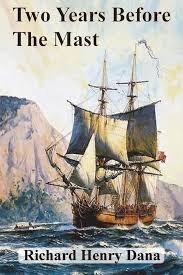
Two Years Before the Mast by Richard Henry Dana, Jr.
Tracing an awe-inspiring oceanic route from Boston, around Cape Horn, to the California coast, Two Years Before the Mast is both a riveting story of adventure and the most eloquent, insightful account we have of life at sea in the early nineteenth century. Richard Henry Dana is only nineteen when he abandons the patrician world of Boston and Harvard for an arduous voyage among real sailors, amid genuine danger. The result is an astonishing read, replete with vivid descriptions of storms, whales, and the ship's mad captain, terrible hardship and magical beauty, and fascinating historical detail, including an intriguing portrait of California before the gold rush. As D. H. Lawrence proclaimed, "Dana's small book is a very great book."
OCTOBER 21
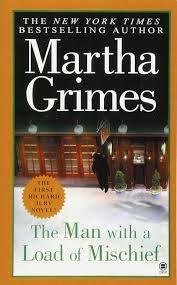
The Man with a Load of Mischief by Martha Grimes
At the Man with a Load of Mischief, they found the dead body stuck in a keg of beer. At the Jack and Hammer, another body was stuck out on the beam of the pub's sign, replacing the mechanical man who kept the time. Two pubs. Two murders. One Scotland Yard inspector called in to help. Detective Chief Inspector Richard Jury arrives in Long Piddleton and finds everyone in the postcard village looking outside of town for the killer. Except for one Melrose Plant. A keen observer of human nature, he points Jury in the right direction: into the darkest parts of his neighbors' hearts...
NOVEMBER 18
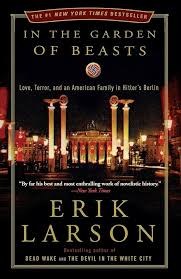
In the Garden of Beasts by Erik Larson
The time is 1933, the place, Berlin, when William E. Dodd becomes America’s first ambassador to Hitler’s Nazi Germany in a year that proved to be a turning point in history.
A mild-mannered professor from Chicago, Dodd brings along his wife, son, and flamboyant daughter, Martha. At first Martha is entranced by the parties and pomp, and the handsome young men of the Third Reich with their infectious enthusiasm for restoring Germany to a position of world prominence. Enamored of the “New Germany,” she has one affair after another, including with the surprisingly honorable first chief of the Gestapo, Rudolf Diels.
But as evidence of Jewish persecution mounts, confirmed by chilling first-person testimony, her father telegraphs his concerns to a largely indifferent State Department back home. Dodd watches with alarm as Jews are attacked, the press is censored, and drafts of frightening new laws begin to circulate. As that first year unfolds and the shadows deepen, the Dodds experience days full of excitement, intrigue, romance—and ultimately, horror, when a climactic spasm of violence and murder reveals Hitler’s true character and ruthless ambition.
DECEMBER 16
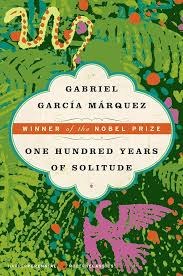
One Hundred Years of Solitude by Gabriel Garcia Marquez
One of the most influential literary works of our time, One Hundred Years of Solitude remains a dazzling and original achievement by the masterful Gabriel García Márquez, winner of the Nobel Prize in Literature.
One Hundred Years of Solitude tells the story of the rise and fall, birth and death of the mythical town of Macondo through the history of the Buendiá family. Inventive, amusing, magnetic, sad and alive with unforgettable men and women—brimming with truth, compassion, and a lyrical magic that strikes the soul—this novel is a masterpiece in the art of fiction.
